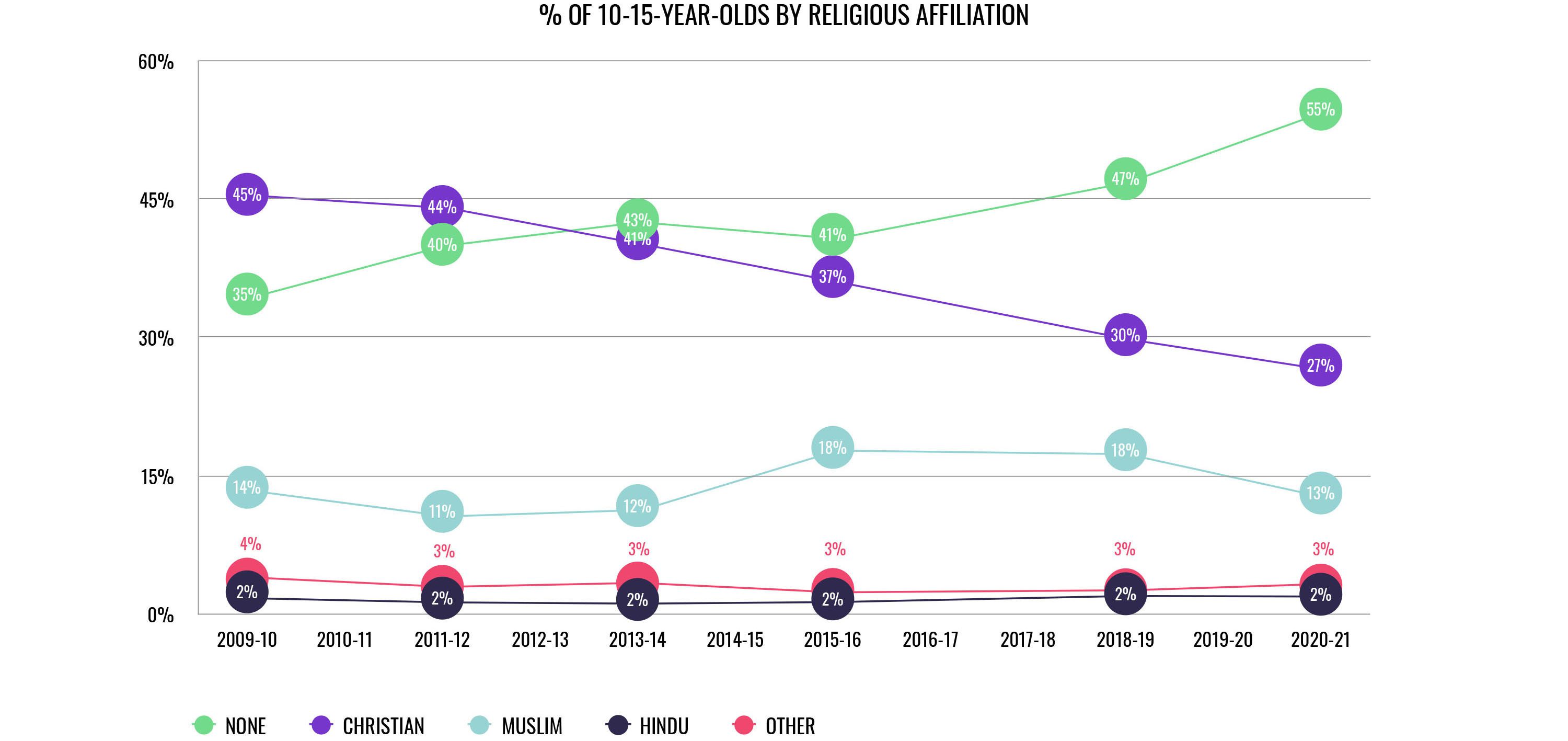
When it comes to religion, the landscape looks very different today than it did ten years ago. There’s been a 40% drop in the number of young people identifying as Christian, and very few consider themselves to be part of a church. This shift may be partly due to the fact that many young people didn't grow up in Christian households, rather than a conscious rejection of the faith. On the flip side, the number of young individuals who don't identify with any religion has risen by almost 60% and Census data shows the Muslim faith has a younger age profile than any other faith group in the UK.
Does this reflect a growing trend of religious diversity and secularism among the younger generation?
We should be mindful that even though formal religious affiliations are waning, belief in a higher power or supernatural forces still persists among many young people. They grapple with questions about the world's suffering, death, and illness, which often make it hard to fully embrace traditional notions of God. Yet, when asked about God's character, they describe a deity who is powerful, kind, loving, caring, and good. Sounds like they would be open to hearing more about the Christian faith right? Unfortunately, when they occasionally encounter churches through school visits and formal events, they don't find it particularly engaging.1 It's a reminder that the way we introduce and nurture faith among young people might need a warmer, more inclusive and relevant approach.
Chart data source:
https://www.understandingsociety.ac.uk/documentation/mainstage/dataset-documentation/variable/ypreliggb